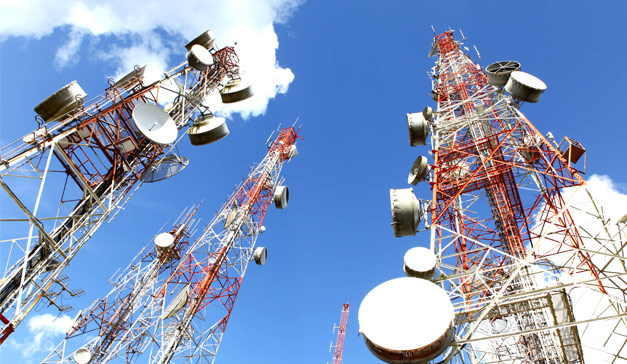Telecom
Global App Downloads Reached 218bn in 2020

After a year that saw more app downloads than ever before, demand for new apps and games is expected to accelerate in 2021.

This is according to the App Annie State of Mobile Report 2021, which states consumers downloaded 218 billion apps in 2020 across iOS and Google Play, up 7% year-on-year (YOY).
The report provides an analysis of the performance of the mobile and app marketplace, and insights into mobile’s expansive impact across industries and the global economy.
According to the App Annie research, mobile adoption boomed in 2020 − advancing the equivalent of two to three years in 12 months. Consumers migrated more of their physical needs onto mobile last year, partly influenced by the COVID-19 pandemic, resulting in mobile spend reaching new heights at $143 billion, indicating a 20% growth YOY.
During the COVID-19 lockdown, the normal time spent every day on cellphones expanded across the globe. Mobile took mindshare of 3.5 trillion hours on Android phones annually, shows the report. Mobile is the only channel with this reach and depth of engagement, it notes.
Other findings in the App Annie State of Mobile Report 2021 include:
E-commerce app boom: The report notes the pandemic led to a quick expansion in the e-commerce sector, making 2020 the biggest mobile shopping year yet. Global e-commerce spend between 1 November and 11 November 2020 reached $115 billion, with mobile driving the lion’s share. This trend is forecast to continue this upward spiral, as more people become more habitual with online shopping.
More time spent online: In the US, Gen Z, millennials and Gen X / baby boomers spent 16%, 18% and 30% more time YOY, respectively, in their most-used apps. In the UK, this was 18%, 17% and 27%, respectively. In the US and UK, Gen Z had the highest affinity for Snapchat and Twitch, respectively.
App popularity: TikTok was the most used app of 2020 and was more popular among Generation Z, as it heads towards 1.2 billion active users in 2021. This was followed by WhatsApp at 600 million installs, followed by Facebook with 540 million installs, Instagram with 503 million, and Messenger with 404 million. This was followed by video-conferencing apps Zoom and Google Meet.
More advertising spend: Given the increasing amount of time spent indoors and in homes, mobile’s growth means a shift in spending on advertising for corporate clients. Many countries saw the continuing demise of print, the shift to streaming entertainment, and the ongoing failure by news media to succeed with paywalls, leaving apps, games and social media platforms to pick up the marketing budget.
Mobile held up the global advertising industry in 2020 and saw placements grow 95% YOY, growing to $240 billion in mobile advertising spend and forecast to top $290 billion in 2021.
Surge in online food delivery services: Mobile orders of fast food and food delivery surged 105% YOY. For most markets analysed, food delivery services for the year ramped up in Q2 and Q3, reaching record highs in Q4 2020 as consumers stayed home amid COVID-19 lockdowns and social distancing policies.
Commenting on these research findings, Karam Malhotra, partner and global VP at SHAREit, says. “The last 10 months saw the seismic and radical shift to work from home, thus translating into a dramatic surge in time spent online and on mobile, as users sought tools to facilitate business, content discovery and games to entertain and escape, and social media to connect with the outside world.
“This resulted in the meteoric rise in app downloads, time spent on mobile and consumer spending. A significant 25% jump from 2019 to top 3.5 trillion hours on Android, and key ‘at-home’ categories are expected to top 1.3 trillion hours on Android phones alone in 2021.”
Telecom
Telcos Threaten to Disconnect Banks over Misinformation on New USSD Charges

Telecommunication companies have threatened to withdraw their Unstructured Supplementary Services Data (USSD), services from banks over what they called misinformation.

MTN Nigeria, Airtel, Globacom and 9Mobile- the telcos disclosed that the banks’ notice to their customers on the new billing system and airtime deductions for USSD services was misleading.
Also, Association of Licensed Telecom Operators of Nigeria (ALTON) also denied that the directive was from the Nigerian Communications Commission (NCC).
USSD is done via shortcodes on mobile phones and allows bank customers to make transactions in places with limited or no internet service.
Recall that banks earlier this week claimed that NCC has directed them to begin charging them from their airtime rather than from customers’ accounts.
The notice from the banks read in part: “In line with the directive of the Nigerian Communications Commission (NCC), please be informed that effective June 3, 2025, charges for USSD banking services will no longer be deducted from your bank account.
“Going forward, these charges will be deducted directly from your mobile airtime balance in accordance with the NCC’s End-User Billing (EUB) model.
“Under this new billing structure, each USSD session will attract a charge of ?6.98 per 120 seconds, which will be billed by your mobile network operator.
“You will receive a consent prompt at the start of each session, and airtime will only be deducted upon your confirmation and availability of the bank to fulfil this service.
“If you do not wish to continue using USSD banking under this new model, you may choose to discontinue use of the USSD channel.”
Reacting, ALTON, umbrella body of telecom operators in Nigeria, said the banks’ notice is a gross misinformation deliberately hatched to suit their selfish interests.
Hence they threatened to withdraw network support to the banks’ USSD services.
Engr Gbenga Adebayo, chairman of ALTON told Vanguard: ” I don’t understand why the banks are twisting agreements and distorting information just to favour their selfish interests. In the first place, the information wasn’t a directive from the NCC but a joint regulatory agreement between the NCC and the Central Bank of Nigeria, CBN witnessed by the telcos and the banks. The agreement was that if the banks finally cleared all USSD debts owed to the telcos by June 2, 2025, they are free to migrate to the end-user billing method, so long as the model of migration is transparent and agreed upon by the telcos.
“The reason for that clause was because the telcos insisted that the process of migration is such that will not allow a customer to be billed twice; in other words, that a subscriber would not have his airtime deducted and also have his or her money deducted for same services from his or her bank account.
” As we speak, some of the banks have cleared their debts, but the majority are yet to do so. So, even if all the modalities of migrating to end-user billing have been perfectly carried out, the implementation cannot even begin because the banks are yet to clear the USSD debt owed to the telcos.
“Our position now is that if that is the way the banks want to treat the agreement, we may withdraw support for their USSD services. It is not a must-have. They can do without it. But, they should clear the debts as agreed,” he added.
Telecom
MTN Nigeria Plans N900Bn in Service Upgrade

MTN Nigeria has announced plans to embark on a massive capital expenditure (CAPEX) drive in 2025, committing nearly N900 billion to significantly enhance network service quality across Nigeria.

Dr. Karl Toriola, CEO, MTN Nigeria,
The substantial investment, more than double the combined CAPEX of approximately N440 billion spent in 2023 and 2024, underscored MTN’s aggressive strategy to address persistent service quality issues and meet growing customer and regulatory expectations.
Dr. Karl Toriola, CEO, MTN Nigeria, detailed this unprecedented financial commitment during a recent interview on Arise TV, emphasizing that improving service quality is the company’s paramount message for the year.
He highlighted a clear understanding and expectation from both the Nigerian Communications Commission (NCC) and security agencies for improved network quality.
A primary focus of this increased CAPEX will be on putting additional capacity in a city like Lagos, particularly in Abuja, where you have a lot of buildings coming up, you need additional sites because there are coverage issues.
Beyond these critical urban centers, the investment aims to bolster network resilience and ensure power stability for its infrastructure nationwide.
This includes proactively addressing site outages by ensuring timely payment for operational necessities such as diesel for generators, a persistent challenge in the Nigerian operating environment.
Toriola outlined a comprehensive upgrade process, which involves placing orders formally, opening letters of credit, and then the equipment gets shipped in and installed.
He added that MTN will be acquiring new sites and laying fiber to the base station to create better stability” where necessary.
While the immediate CAPEX is geared towards improving existing service quality and capacity, this investment aligns with MTN’s broader goals of enhancing financial inclusion in underserved rural areas, suggesting a long-term vision for network expansion and service improvement that extends beyond metropolitan areas.
Subscribers can anticipate tangible improvements in service quality, with a significant improvement in quality of service expected by the end of the second quarter or early in the third quarter of 2025, according to Toriola.
“This year is all going to be about capital expenditure on an aggressive basis to fix quality of service issues (and) meet both the regulators’ and the public’s expectations,” he affirmed, reiterating MTN’s steadfast focus on customer experience through substantial capital investment.
Telecom
Telecom Regulators in Africa Chart New Course for a Data-driven Future

Telecom regulators and industry leaders from across the Middle East and Africa gathered in Cairo last week to chart a data-driven future for the region.

In a region where digital transformation is accelerating at unprecedented speed, connectivity intelligence firm, Ookla and Egypt’s National Telecom Regulatory Authority (NTRA) joined forces to organise the Telecommunications Regulatory Summit
Themed ‘Harnessing Data and Technology for Superior QoS’, the summit focused on how data, particularly crowdsourced insights, can transform regulatory strategies across the region.
The summit attracted stakeholders from over 30 countries, including delegates from the International Telecommunication Union (ITU) and World Broadband Association (WBBA), who engaged in high-level discussions on optimising network performance and accelerating digital inclusion.
Karim Yaici, lead industry analyst for the Middle East and Africa at Ookla, said the event set the tone for the growing value of data-driven decision-making.
“Access to and the use of crowdsourced data contribute to making more informed decisions, fostering transparency and ensuring that citizens in the MEA region benefit from high-quality, accessible and affordable connectivity,” he said.
The experts underlined that crowdsourced data is becoming a critical complement to traditional regulatory methods.
They agreed that it helps identify service gaps, prioritise infrastructure investments, and drive innovation.
With broadband speeds now closely tied to GDP growth and productivity, accurate performance data is seen as key to socio-economic advancement.
Dr. Hossam Abdel-Mawla, vice-president of technical affairs and quality of service at NTRA, stressed that the summit was pivotal in fostering regional collaboration.
“By actively sharing best practices and exploring innovative data-driven strategies, we are shaping a future where telecom regulations ensure digital inclusion and economic growth across the region,” he said.
In a key session, Ahmed Nabawy, director of client services at Ookla, presented findings on 5G performance in Egypt and Tunisia.
He demonstrated how Ookla’s unified data platform, powered by AI, enables operators to analyse 5G-capable device density and prioritise high-impact rollout areas.
The summit also explored the shift from conventional network quality metrics to more user-centric Quality of Experience models. These advanced analytics tools promise to enhance transparency, improve accountability, and ultimately deliver better connectivity experiences for all.

 E-Business3 days ago
E-Business3 days agoNIMC Plans to Register 95 Percent Nigerians by December

 News3 days ago
News3 days agoJAMB Waxes Worriedly over Rising Digital Exam Fraud

 Telecom3 days ago
Telecom3 days ago9mobile Nigeria Inks Agreement to Roam with MTN

 Telecom3 days ago
Telecom3 days agoIHS Nigeria Moves to Enhance G4S Secure Solutions Site Patrols and Increase Operational Efficiency with Patrol Vehicles

 E-Business2 days ago
E-Business2 days agoAXIAN Telecom Invests in Jumia Post-MTN Era

 Telecom3 days ago
Telecom3 days agoBanks, Telcos to Start Deducting USSD Charges from Airtime Today
- E-Financial2 days ago
UBA Compiles with NCC, to Deduct USSD from Customers’ Accounts

 E-Business2 days ago
E-Business2 days agoNigeria Strengthens Cybersecurity, Launches National Cleanup Plan
















